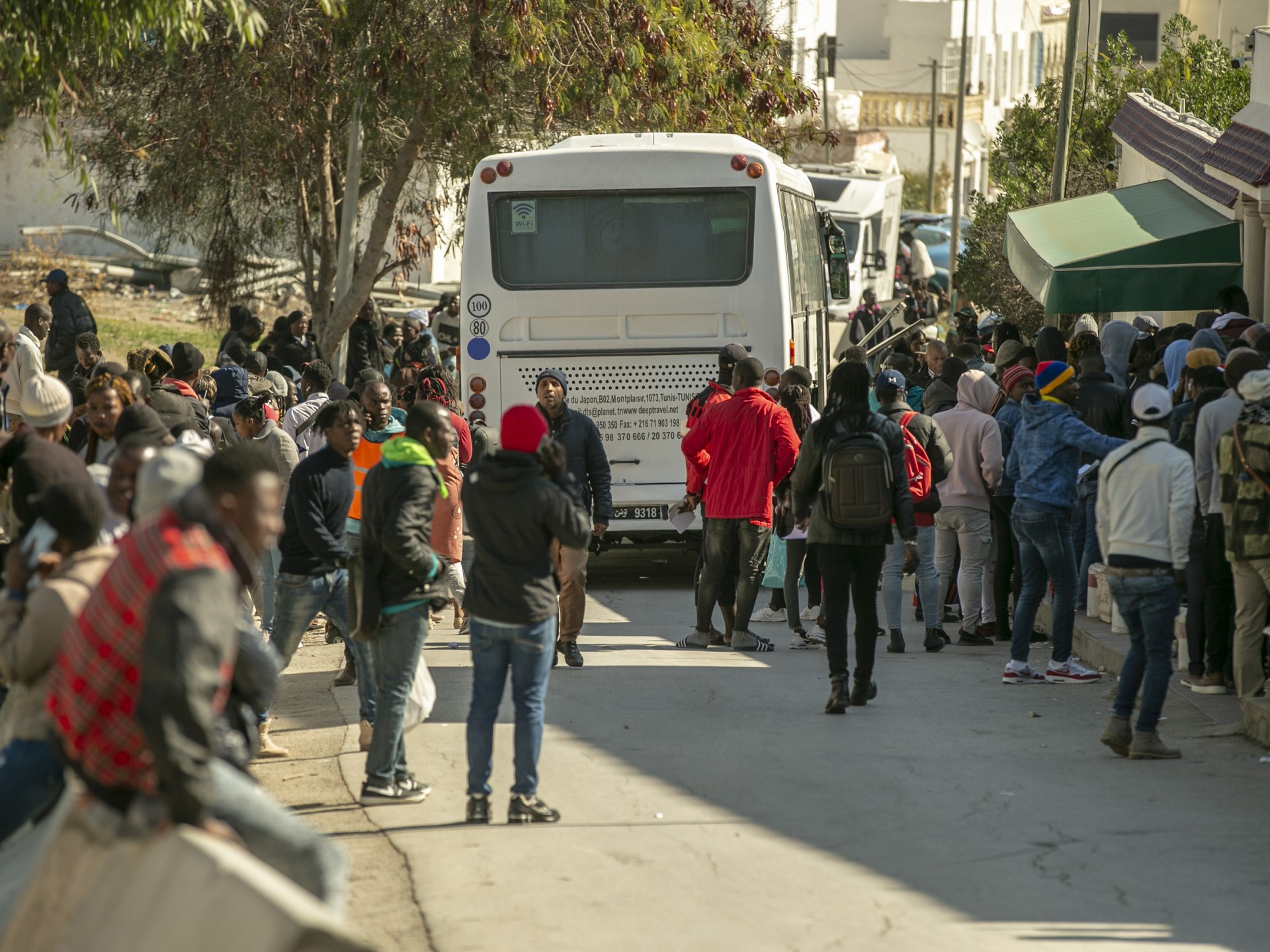Tunisian President Kais Saied said that there is what he described as a misinterpretation of the problem of African immigrants with the aim of offending Tunisia, at a time when reactions continue to his recent statements about irregular immigrants in his country from sub-Saharan countries that were considered "racist".
Said added, in statements he made on Wednesday evening, that there is a difference between applying the law and respecting Tunisia's sovereignty, and the violations that affect Africans.
In the face of critical reactions to the president's statements, the Tunisian authorities denied earlier adopting a racist policy towards immigrants on their lands.
In the latest reactions, the Chadian Foreign Ministry condemned the Tunisian president's statements regarding sub-Saharan African migrants who are in Tunisia.
The Chadian Foreign Ministry said - in a statement - that Saeed's statements threatened the lives of sub-Saharan Africans in Tunisia, and began targeting them.
Adding that she is working with the International Organization for Migration to bring back those Chadians who wish to return from Tunisia.
Countries including Guinea and Ivory Coast were forced to evacuate hundreds of their nationals in Tunisia due to frequent attacks on some Africans in Tunisia.
Earlier, the African Union criticized the Tunisian president's statements, and the United States and the United Nations expressed concern about the situation of African migrants in Tunisia.
oath letters
In the context, the so-called "Anti-Fascist Front" in Tunisia accused President Kais Saied of adopting the discourses of the Italian and French extreme right in the issue of immigration and asylum.
Representatives of the Front considered that President Said had become literally implementing what they described as the European immigration project.
Ziad al-Khaloufi, a member of the Anti-Fascist Front, said that the Tunisian president's discourse on immigrants represents a "scandal" that coincides with his creation of a dangerous political reality through his campaigns against journalists, trade unionists, and political opponents to cover up the economic and social failure of the presidency, as he described it.
Criticism of the Minister of the Interior
On the other hand, dozens of Tunisian organizations and associations criticized statements made by Interior Minister Tawfiq Charafeddine, in which he described parties, businessmen, media professionals and trade unionists as "traitors who sold the country and allied against the people."
Organizations and associations, led by the Tunisian General Labor Union and the Journalists Syndicate, considered - in a joint statement - that Charafeddine's statement on the anniversary of the terrorist attack on the city of Ben Guerdane (southeast) came outside the political context of the occasion, and made it clear that this occasion requires a call for unity among all Tunisian women and men.
She said that the minister deviated from what she described as factional, divisive rhetoric that monopolized patriotism and withdrew it from most of the forces that confronted terrorism and its culture.
The organizations and associations categorically and in principle rejected the tone of threat and intimidation made by the Minister of Interior, and called on the Minister to apologize for what they described as a violent, dangerous and hasty statement and to withdraw it from the Ministry’s pages on social networks. They also called on him to focus on improving the performance of a Ministry that has a bad record in suppressing individual freedoms. And in general, as she put it.
For his part, the head of the opposition National Salvation Front, Ahmed Najib al-Shabi, said that the statements of the Minister of Interior are an employment of the security apparatus to resist the Free People, as he put it.
During a symbolic stand organized by the Salvation Front in solidarity with the detainees in Tunisia, Chebbi considered that those who attack rights and freedoms should be held accountable.

